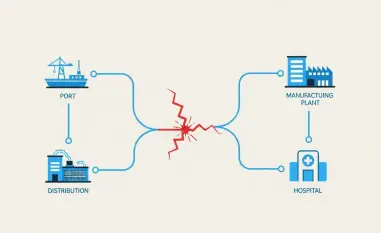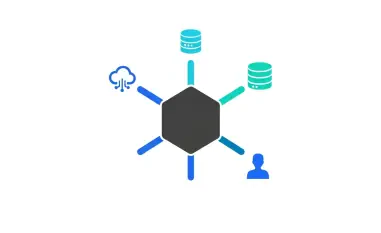Overview of Apache Airflow’s Role in Industry
Imagine a sprawling network of data pipelines powering critical operations across major industries, suddenly at risk of exposing sensitive credentials due to a hidden flaw that could jeopardize entire systems. Apache Airflow, a cornerstone in workflow management, has become indispensable for orchestrating complex data processes in sectors like technology, finance, and healthcare. Its ability to automate and streamline tasks has made it a trusted tool for organizations handling vast amounts of information daily.
The platform’s adoption continues to grow as businesses increasingly rely on data-driven decision-making. From scheduling intricate ETL (Extract, Transform, Load) processes to managing machine learning workflows, Airflow ensures seamless coordination. This widespread use underscores the critical need for robust security measures to safeguard the sensitive data it processes.
Given that Airflow often handles confidential information such as API keys and database credentials, any lapse in protection can have far-reaching consequences. The recent discovery of a significant vulnerability in version 3.0.3 has brought this issue into sharp focus, highlighting the importance of maintaining trust in such essential tools.
Detailed Analysis of the CVE-2025-54831 Vulnerability
Nature and Origin of the Security Flaw
At the heart of this issue lies CVE-2025-54831, a severe vulnerability in Apache Airflow version 3.0.3 that undermines the platform’s access control system. Designed to restrict sensitive connection details to a “write-only” mode for users with editing privileges, the system was intended to shield critical data. However, a flaw in implementation has shattered this barrier, allowing users with mere read-only permissions to view protected information.
This breach manifests through both the Airflow API and the web user interface, exposing data such as passwords and connection strings. Even configurations meant to hide sensitive fields, like AIRFLOW__CORE__HIDE_SENSITIVE_VAR_CONN_FIELDS, fail to prevent this unauthorized access. Such a lapse reveals a critical oversight in the design specific to this version.
Unlike previous 2.x versions where limited exposure to editors was an accepted norm, version 3.0 aimed for heightened security. The failure to uphold this standard in 3.0.3 marks a significant regression, prompting urgent concern among users and developers alike.
Impact and Severity Assessment
The ramifications of this vulnerability are profound, as it permits unauthorized access to highly sensitive data, including database keys and API tokens. Organizations relying on Airflow for critical operations face potential breaches that could compromise entire systems. This exposure threatens not just individual businesses but also interconnected networks dependent on secure data handling.
Apache’s security team has rated this flaw as “important,” signaling the pressing need for immediate action. The severity stems from the direct contradiction of security enhancements introduced in version 3.0, eroding confidence in the platform’s protective capabilities. Delaying remediation could amplify risks, especially for industries handling regulated or personal data.
Analysts note that the impact extends beyond technical glitches to affect organizational trust in workflow tools. A single incident of data leakage could result in financial loss, legal repercussions, and reputational damage, emphasizing why swift resolution remains paramount for all stakeholders.
Security Challenges in Workflow Management Platforms
The incident with Airflow sheds light on broader difficulties in securing workflow management systems. These platforms, by their nature, juggle intricate access permissions while managing sensitive operations, making them prime targets for exploitation. Balancing user accessibility with stringent controls often leads to overlooked vulnerabilities in design or execution.
Implementation errors, as seen in this case, compound the challenge of maintaining robust defenses. Even well-intentioned features can falter under real-world conditions if not rigorously tested. Regular security audits and stress-testing access mechanisms stand out as essential practices to uncover hidden weaknesses before they are exploited.
Moreover, the dynamic nature of cyber threats requires constant adaptation of security protocols. Organizations must prioritize ongoing training for teams and invest in monitoring tools to detect anomalies early. Such proactive steps can mitigate risks and strengthen resilience against evolving dangers in workflow environments.
Response and Remediation Strategies
In response to this critical flaw, the Apache community has issued a clear directive for users of version 3.0.3 to upgrade to 3.0.4 or later without delay. This updated release addresses the access control failure, reinstating proper restrictions on sensitive connection data. Prompt adoption of the fix is vital to prevent potential breaches.
Beyond the immediate update, organizations are encouraged to review their current configurations and ensure alignment with best practices for data protection. The resolution in version 3.0.4 restores integrity to the system, but vigilance remains crucial. Keeping abreast of security advisories from Apache can help anticipate and address future issues.
Additionally, implementing layered security measures, such as enhanced logging and real-time alerts, can bolster defenses. Companies should consider periodic assessments of their Airflow deployments to confirm that protective settings function as intended, reducing the likelihood of similar incidents disrupting operations.
Long-Term Implications for Workflow Security
This vulnerability raises questions about sustained trust in Apache Airflow and comparable platforms managing critical workflows. While the swift response to fix the flaw is commendable, it underscores the fragility of security in complex systems. Users may now demand greater transparency and assurance from developers regarding protective measures.
Emerging trends in workflow security point toward stronger encryption methods and more granular role-based access controls. These advancements aim to limit exposure even in the event of a breach. Over the next few years, from 2025 onward, expect tighter integration of such features in updates to Airflow and similar tools as a direct response to current challenges.
The incident could also spur innovation in how security protocols are designed and tested. Developers might prioritize pre-release simulations of access scenarios to catch flaws early. This shift in focus may redefine industry standards, pushing for a more proactive stance on safeguarding data in workflow management.
Final Reflections and Next Steps
Looking back, the exposure of sensitive data in Apache Airflow 3.0.3 through CVE-2025-54831 served as a critical wake-up call for organizations and developers alike. It revealed how even well-designed systems could falter under specific conditions, leaving vital information at risk. The swift identification and resolution of the flaw demonstrated the importance of community collaboration in addressing security threats.
Moving forward, stakeholders should commit to regular updates and continuous monitoring to prevent recurrence of such vulnerabilities. Exploring partnerships with cybersecurity experts to conduct in-depth audits could provide an added layer of protection. These steps would help fortify systems against unforeseen lapses.
Additionally, fostering a culture of security awareness within teams proved essential during this incident. Encouraging proactive engagement with advisories and patch releases should become standard practice. By prioritizing these actions, the industry can build a more resilient foundation for workflow management tools in the years ahead.













